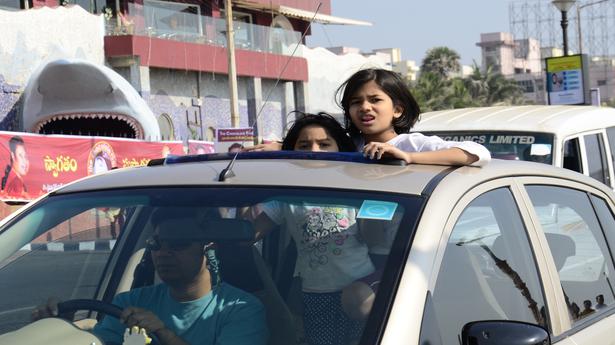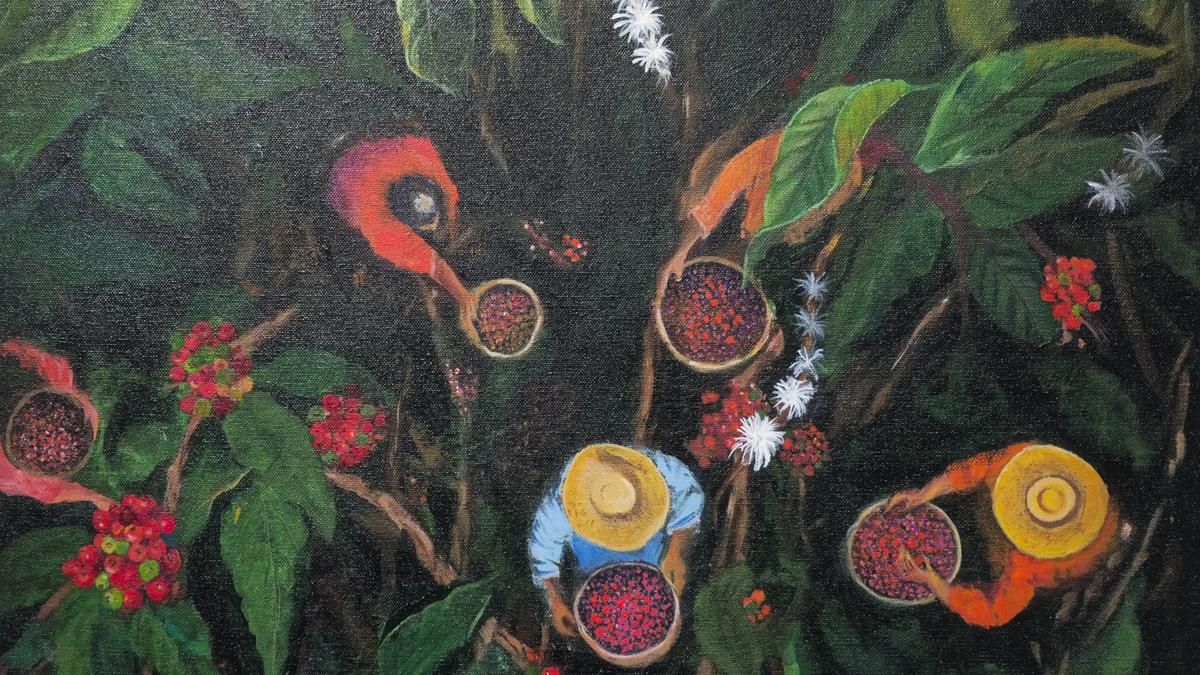Eid brings families together around the dining table with a variety of traditional delicacies and sweetmeats.
| Photo Credit: SPECIAL ARRANGEMENT
As Ramzan draws to a close this week, home cooks from the Muslim community will be reaching out for their special recipes on Eid al-Fitr, the festival celebrated globally to mark the end of the ninth Islamic calendar month of dawn-to-dusk fasting.
Eid is also a time of family gatherings. While nothing says Eid more than ‘sheer khurma’, a fragrant milky concoction of roasted vermicelli and nuts or mutton biryani and dhalchar lentil and bone curry with curd and onion chutney, many other traditional recipes, especially sweet dishes, from southern India are prepared in Tamil Nadu.
Steamed custard
“Every region has some delicacies that are made for breakfast, with common local ingredients. In Tiruchi and Thanjavur districts, jaalar vada (lattice pancakes stuffed with chicken filling) and vattalappam are served when the family assembles after Eid prayers in the morning,” says S Faizunnisa Ansar, a homemaker from Thanjavur based in Chennai. “Sometimes the plain jalar pancakes and vattalappam are eaten together as dessert.”
Vattalappam is a steamed custard of Malay origin that exists in several avatars in Tamil Nadu and Sri Lanka. “In Thanjavur, we use the coconut’s first milk extract for the best results. There are places where vattalappam is made with regular dairy milk too,” says Faizunnisa, adding “Vattalappam keeps well in the fridge for weeks.”
To add body and thicken the pudding mix, she soaks one and a half tablespoons of raw rice and grinds it on an ammikkal with cumin, anise, cashew nuts, poppy seeds, cardamom, clove and cinnamon to get a lemon-sized ball of fine paste. Six eggs are blended in an electric mixer with a heaped cup of sugar (some variations use jaggery), plus the coconut milk (around a cup and a half), along with the ground paste to get the custard base ready. The mixture is strained and poured into a greased mould, covered with a lid and pressure-cooked for around 15-20 minutes. Once it’s ready, it can be unmoulded and served in small slices.
Sweet treats
Dum Adai, a popular Eid sweet from Kayalpattinam
| Photo Credit:
SPECIAL ARRANGEMENT
Coconut milk plays an important role in Dum Adai — a speciality of Muslim cuisine in Kayalapattinam — which resembles mini cakes. “Usually we have a heavy breakfast of non-vegetarian curries accompanied by idiyappam, washed down with javvarusi [sago] payasam after the Eid prayers. Dum Adais are the sweet treats we keep ready for visitors and festive snacking,” says Kayalapattinam-born caterer Ashika Kader, who also makes the desserts to order from home in Tiruchi.
The ease of ordering food and the availability of exotic sweets such as baklava’and kunafa in local shops have foreshadowed the older recipes.
But it is clear that home cooks have always been experimenting with world cuisine. The muttai paniyaram which uses a fermented dough of rice flour and eggs, sugar and semolina flavoured with cardamom, is shaped and deep fried to resemble a doughnut.
Though this is easy to prepare, cooks must wait for at least five hours for the dough to ferment.
“Many of the dishes that require coconut milk and hours of soaking have slowly been replaced by modern and more contemporary food during Eid. But these recipes have their own charm and nostalgic value,” says Ashika.
Dum Adai
Ingredients
- Milk – 1 litre (boiled and reduced to 350 ml)
- Coconut – 4 (big)
- Semolina (rava) – 300 grams
- Maida – 100 grams
- Egg – 1
- Powdered sugar – 350 grams
- Ghee – 150 grams
- Cardamom (ground)- 1 teaspoon
- Rose water – 2 teaspoon
- Sliced nuts – almonds, pista, cashew
- Food colouring – Green, Yellow, Pink
Method
- Extract coconut milk by straining grated coconut in a muslin cloth.
- Add semolina and soak it in coconut milk for three to four hours.
- Add maida, sugar, milk, ghee, egg, cardamom, and rose water.
- Divide the batter into four portions in separate containers.
- Add different food colours to each portion of the divided batter and keep one portion white. Grease 15 to 20 mini tart moulds with ghee.
- Pour a teaspoon of each colour mixture into the greased moulds. You can experiment with designs and colours according to your taste.
- Garnish with sliced almonds, pista and cashew.
- Bake in the oven for 20 to 25 minutes at 190 degrees C. Unmould and serve hot.
- Dum Adai can be stored for up to 10 days in the fridge.





